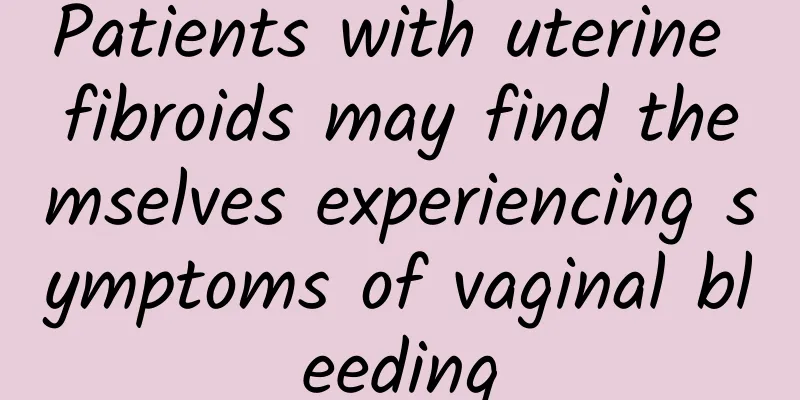Is obesity caused by intestinal bacteria? Weight loss doctor: Do this to get back to slim shape~

|
When it comes to maintaining good intestinal bacteria, I believe most people will intuitively think of health benefits such as maintaining immune balance and improving constipation problems. But did you know? The diversity of intestinal bacteria and the amount of good bacteria will affect a person's body shape! Weight loss doctors say that if you want to regain your slim figure, in addition to moderately increasing your activity level, correctly controlling your diet, and avoiding high-sugar and high-fat foods, maintaining a balanced and healthy intestinal flora is key. Is obesity caused by poor intestinal bacteria? Experts say... But why is the cause of human obesity also related to the distribution of bacteria in the intestines? Dr. Huang Zhikun, director of the International Metabolic and Physical Medicine Center of the China Medical University Hospital, said that this is because the decomposition substances and endotoxin components secreted by the good and bad bacteria in the intestines will travel through the blood to various organs of the human body and even affect the functioning of the brain. Once the intestinal bacteria lose balance and cannot maintain their diversity, it is not only easy to cause emotional problems such as anxiety and depression; it is also likely to induce diabetes, high blood pressure, and even obesity! Dr. Huang Zhikun mentioned in his book "Obesity is Not What You Think" that according to a series of mouse experiments conducted by Jeffrey Gordon's team, a professor at the University of Washington, it was found that the intestinal bacteria of human twins, one fat and one thin, were injected into the intestines of the twins' sterile mice, and then fed with food of the same calorie content. The results showed that mice with fat intestinal bacteria were not only heavier than mice with thin intestinal bacteria, but also had less diverse intestinal bacteria species than the latter. Therefore, it can be inferred that if you want to have a slim figure, it is very important to maintain the richness of intestinal bacteria and increase the number of good bacteria! Dr. Huang Zhikun emphasized that when facing the problem of obesity, people with a body mass index (BMI) ≥ 27 are advised to consult a professional doctor and plan a comprehensive weight loss plan with the help of a nutritionist, fitness trainer, and nurse. This is the only way to regain a slim figure. To avoid obesity, first improve the diversity of intestinal bacteria! Eat more raw food and actively seek medical treatment to help improve However, what should we do specifically to increase the diversity of intestinal bacteria and stay away from the annoying problem of obesity? In this regard, Dr. Huang Zhikun mentioned that in addition to changing the diet that tends to be high in fat, sugar, spicy and other foods that are prone to producing bad bacteria, it is also important to eat more fresh fruits and vegetables that keep the food in its original state. The key is to actively seek medical treatment and seek assistance from professional doctors. Dr. Huang Zhikun emphasized that in fact, more than 10 years ago, the World Health Organization (WHO) had already defined obesity as a disease! As for what is disease? This means that obesity, like diseases such as gallstones and sinusitis, is not only a symptom, but once it occurs, it will affect the organs and overall health of the organism. Therefore, since people will seek medical help for treatment of gallstones and sinusitis, why don’t people with obesity seek doctors? What's more, ignoring the severity of obesity will not only affect body shape, but also greatly increase the patient's chances of suffering from metabolic diseases such as depression, hyperlipidemia, hypertension, and diabetes, which can be said to affect the entire body. Therefore, Dr. Huang Zhikun emphasized that when facing the problem of obesity, people with a body mass index (BMI) ≧27 should consult a professional doctor and plan a comprehensive weight loss plan with the help of a nutritionist, fitness trainer, and nurse to find out the root cause of obesity. This is the only way to regain a slim figure instead of trusting in folk remedies or diet pills of unknown origin, which will destroy the body's balance mechanism. As for those whose body mass index (BMI) is ≥32, they already have severe obesity problems and obesity-related diseases; and those who have sought medical treatment (exercise, meal replacements, medication, etc.) for up to half a year without significant results. Alternatively, for people whose BMI is over 27.5 and who have type 2 diabetes, whose blood sugar is not well controlled, and whose glycosylated hemoglobin (HbA1C) is over 7%, it is recommended that they consider weight loss surgery for treatment. Randy Sloan, a professor at the University of Michigan, once published a study in which he mentioned that after performing gastric bypass surgery on obese mice, the intestinal bacteria of the obese mice after the surgery were transferred into the intestines of sterile mice. Unexpectedly, the latter lost 5% of their body weight within 2 weeks. Changing the intestinal flora ecology is not just about diet research: bariatric surgery can also help Randy Seeley, a professor at the University of Michigan, published a study in 2013 in which he performed gastric bypass surgery on obese mice and then transferred the intestinal bacteria of the obese mice into the intestines of germ-free mice. Unexpectedly, the latter lost 5% of their body weight within 2 weeks, indicating that the intestinal bacterial ecology of the fat mice after weight loss surgery was different from that before the surgery. In addition, there was a research paper published in the journal Cell Metabolism two years ago, which took the intestinal bacterial species of obese patients who had undergone weight loss surgery and those who had not undergone weight loss surgery, and fed them to mice with no bacteria in their gastrointestinal tract for experiments. Unexpectedly, it was discovered that these mice easily became fat after eating the intestinal bacteria of obese people who had not undergone weight loss surgery. However, if the mice eat the intestinal bacteria of mice that have undergone weight loss surgery, they will not have the problem of gaining weight. From the results of the above two experiments, we can know that the key to whether a person appears obese or not is indeed closely related to the types and diversity of intestinal bacteria. If you want to change the types of bacteria in your intestines, in addition to actively adjusting your eating habits and lifestyle, choosing weight loss surgery under the evaluation of Dr. Ching-kuo is another option that can help change the ecology of your intestinal bacteria. |
<<: Resveratrol works! Eat more grapes and mulberries to get rid of fatty liver!
>>: To put an end to fatty liver disease, take care of the "Miss Dutch" in your body first!
Recommend
A brief discussion on dietary considerations for patients with multiple uterine fibroids
Multiple uterine fibroids are the most common ben...
Symptoms of dysmenorrhea can reflect the severity of the disease
Medical evidence shows that dysmenorrhea often oc...
What are the commonly used folk remedies for treating amenorrhea?
Amenorrhea refers to a woman who is over 18 years...
To prevent fatty liver, should we eat less white rice and white flour? Nutritionist Zhao Hanying: Eat more plant protein to reverse fatty liver
About a quarter of the world's population suf...
How does Traditional Chinese Medicine understand ovarian cysts?
TCM has a long history of understanding ovarian c...
Women wonder why they suffer from cervicitis? Here are the causes of cervicitis to tell you at once
The female uterus plays an extremely important ro...
Benefits of eating deer placenta cream after miscarriage
After some women learn they are pregnant, they go...
What tests are done for pelvic peritonitis
Tenderness and rebound tenderness are the main si...
You can eat happily while losing weight! Mastering the 7 golden principles of a sugar-reducing diet, a Japanese blogger lost 43 kg
I used to be a glutton who loved to eat big meals...
Chronic salpingitis can cause ovulation bleeding
Chronic salpingitis may cause ovulation bleeding,...
How to prevent irregular menstruation?
How to prevent irregular menstruation? To prevent...
Introduction to the hazards of two very serious ovarian cysts
Ovarian cysts are a very harmful gynecological di...
What is immunotherapy? You will know after reading this
Immunotherapy for recurrent miscarriage first app...
What is the chance of pregnancy with cervical erosion 3rd degree
What is the chance of pregnancy with cervical ero...
How to treat dysmenorrhea quickly and effectively!
Menstruation accompanies women for most of their ...









